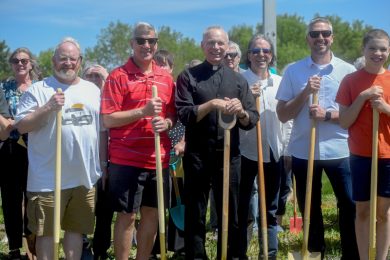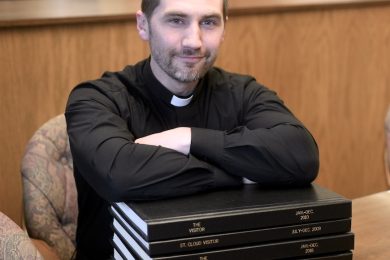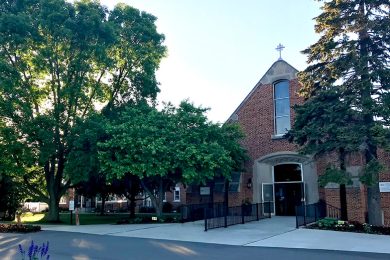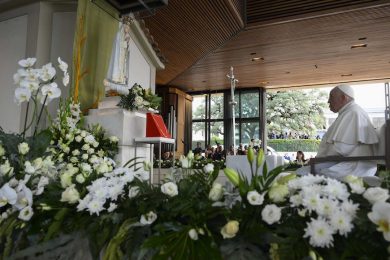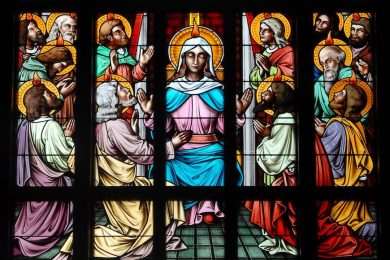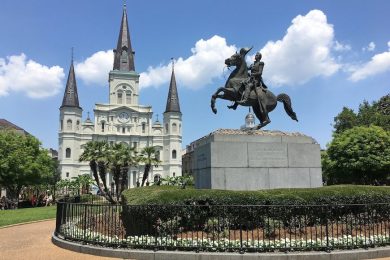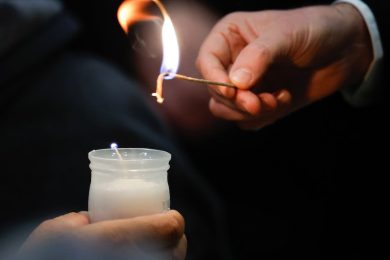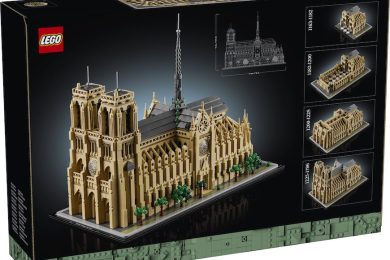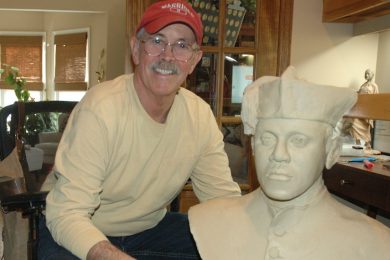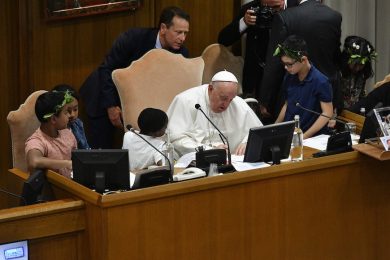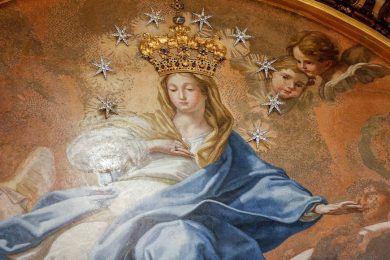It reveals a great deal about the Eucharist that any Catholic can say something about the Living Bread come down from heaven, but no Catholic can say everything about it.

One of my small Church music amusements is the title of the hymn tune for the song we know as “For All the Saints.” In Latin, the name of that melody is “Sine Nomine” — literally, “without a name.” So the name of the song is the Song With No Name. It’s a little paradox that might remind you of a certain brand of sirloin as well.
When God feeds the Hebrew people on their long desert journey to the Promised Land, they call this providential bread “manna.” But manna is not really a noun, a name; it is a question. As Exodus 16:15 notes, manna in Semitic languages means roughly, “What is this?” It reflects the encounter with a mystery they cannot adequately label.
We can leave aside the complexities of Hebrew but note that, in the same way, the Eucharist is for us a question echoing words from Scripture. “How can this man give us His flesh to eat?” the crowds will wonder. “What are you looking for?” Jesus asks his first followers. And down the ages, he asks each of us: “I am the Resurrection and the Life; do you believe this?”
There is another example in the Old Testament of a word the Jewish people generally did not speak aloud: “Yahweh,” the divine name God revealed to Moses in the burning bush. Yahweh means “I Am Who Am,” and this name was considered too holy for sinful people to voice. So when the Hebrew Scriptures were read and Yahweh appeared on the scroll, the reader said instead “Adonai,” or My Lord.
Once a year, however, the high priest would invoke the name of Yahweh, on the Day of Atonement, imploring divine mercy for the people’s infidelities to the Covenant. This is in the background at Jesus’ trial, when Jesus is asked: “Are you the Messiah, the Son of the Blessed One?” and he answers simply and clearly “I Am.” Jesus, the true High Priest, does not simply invoke the name of God to ask for mercy. He is God’s mercy in person, about to offer his life on the cross in burning love.
In thanksgiving for salvation, the Church renews the memorial of that sacrifice every day all over the world. Jesus, the Living Bread come down from heaven, gives himself to us throughout our journey toward the place prepared for us.
Like the manna, this providential nourishment from God cannot be adequately labeled. Yet in awe and wonder, we humbly recognize that the creator and redeemer of all things comes to us in a way that we can literally take within ourselves to give us life, now and forever.
So the Eucharist remains a question, not only because it is beyond human understanding, the very presence of the infinite God in the flesh, the body and blood, soul and divinity of Jesus. It is also a living question in our own spiritual lives, as Jesus asks us the same question he put to the Twelve: “Who do you say that I am?”
In the “Confessions,” as he slowly opened his life to Christian faith, St. Augustine tells of a moment when he heard Jesus speak in his heart: “I am the food of the fully grown; grow, and you will feed on Me. But receiving Me will not change Me into you, like the food you eat for your body. Instead, you will be changed into Me.”
“You will be changed into Me.” This is the deepest purpose of the Eucharist. As we consume the body of Christ, we become the body of Christ, drawn into a communion of divine and human love.
This gift is not given for ourselves to keep, in personal piety; rather, something like the paten and the chalice, we hold that life within us so it can be given to others. In loving service — as Jesus washed his disciples’ feet at the Last Supper to foreshadow the self-emptying of the cross — we do this in memory of him.
A last thought. As the Mass anticipates and already shares in the Wedding Feast of the Lamb (see Revelation 19:7), I sometimes think of the “Amen” we say as shorthand for the communion of love that is sacramentalized in both marriage and the Eucharist.
Jesus says to us: “I, Jesus, take you as a part of my body. I promise to be true to you, in good times and in bad, in sickness and in health. I will love you and honor you, all the days of my life.” May we respond with humble awe and sincere devotion: “I take you, Jesus, to be my Lord and Savior. I promise to be true to you, in good times and in bad, in sickness and in health. I will love you and honor you, all the days of my life. Change me to be more and more like you.”
Thus may we come to sing God’s perfect praise with all the saints, in a song that needs no name because there is no other.
Father Tom Knoblach is pastor of Sacred Heart in Sauk Rapids and Annunciation in Mayhew Lake. He also serves as consultant for health care ethics for the Diocese of St. Cloud.
Top photo: © Getty Images/alesouzaphotos

